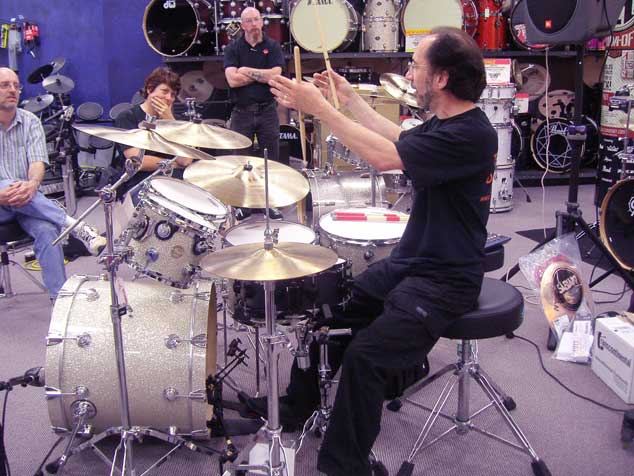Jet lag is tough on everyone but especially musicians. Learn what you can do to lessen its impact in this comprehensive article that follows, courtesy of Selling Magazine via SmartBiz.com.
The next time somebody brings up jet lag, glance briefly at the ceiling, then tell them: “You mean, of course, circadian dischronism.” That should shut them up. If you can take care of that, we’ll do the rest right here. You shouldn’t have to talk, read or worry about jet lag again for months.
If you don’t worry about it now, so much the better. You could be one of the lucky people who will never experience the J-thing. However, the most pessimistic study to date, done for a major drug firm, indicates that 94 percent of air travelers experience some or all of the commonly associated symptoms: fatigue, insomnia, disorientation, inability to concentrate, headache, aching joints, diarrhea and/or loss of appetite.
For those who are susceptible, the potential hit from jet lag is serious enough that some companies will not let executives sign binding documents within 24 hours after getting off a flight through several time zones. The worst-case scenario? Fly eastward over six time zones or more; depart at night; drink lots of coffee.
Eastbound travel tends to be somewhat more taxing than westbound for the body’s biological clock, that elusive but very real mechanism that organizes physical functions and responses under a schedule as regular as sunrise and sunset. Generally speaking, the farther you fly at jet speeds, the more time needed for your natural cycles to adjust to an unfamiliar daylight envelope.
It would be nice to believe we frequent flyers can condition ourselves to jet lag, but that is unlikely. I can safely say I have never missed a meal or blown an appointment on the other side as a result of the Big L. However, after a 20-hour (net in-air) return to New York from Bangkok with just enough of a layover in Japan for a tall beer and a short earthquake (true), I went down for a full three days–totally useless, babbling on and on about arriving at JFK an hour before I left Tokyo, which was so. On monster flights like this, business travelers from either side of the Pacific seem equally hapless. Some try to roll into a little ball that can sleep in two seats; the rest usually pass out sitting straight up during the third movie, one arm extended into the aisle, fist clenched around three or four miniature liquor bottles with necks protruding between fingers like a set of brass knuckles.
Seasoned travelers in sales and marketing jobs make their own personal adjustments to jet lag. Ed Murphy, an executive who oversees a large organization’s prodigious worldwide direct sales of audio/video/entertainment products, makes six or more overseas trips a year, most of them to Europe. “I arrange to arrive at my hotel by about 10 a.m.,” says Murphy. “I immediately take a hot shower, draw all the blinds and go to sleep until sometime in the late afternoon.”
He gives up a day to minimize the ravages of jet lag. “I found out long ago that if I didn’t do this, I’d be falling asleep in afternoon meetings for the rest of the week.”
Marsha Williams, a senior financial manager for Chicago-based Amoco Corp., says advice passed around in the company helped her evolve a strategy to deal with four or five Far Eastern trips (13-16 hours each way) per year. “Based on what others here have suggested, I never sleep on the plane either going or coming back,”
Williams says. “I tried sleeping en route originally, but that just seems to make jet lag worse. I also eat very little and drink only water.” Williams usually tries to arrive in Tokyo, Hong Kong,
Singapore or mainland China by Saturday evening to be fit for business on Monday morning.
The toll that jet lag takes on business travelers has inevitably brought it under heavy attack. For more than a decade, the specialty of “chronobiology” has been getting more attention. Individual studies to identify both a prevention and cure for circadian dischronism have all followed generally similar paths. Currently, the most accessible approach is the set of complicated procedures put forth in the anti-jet-lag program devised by Charles Ehret, including what is sometimes called the Argonne Diet. (Dr. Ehret is the former director of the Argonne National Laboratory in Illinois.)
Recent studies involving the brain hormone melatonin, however, have resulted in a major R&D push for a real jet lag pill. (Don’t mistake anything on the market today for melatonin; current over-the-counter stuff is dubious at best.)
Meanwhile, dramatic successes in resetting the biological clocks of NASA astronauts by administering intense artificial light at programmed intervals suggests future methods for institutional prevention.
Why West is Best
Why is flying east likely to aggravate jet lag? Researchers say that the typical human biological clock operates on roughly a 25-hour cycle, which obviously is not quite in synch with the precise, 24-hour daily routine of the planet on which we live. It may contribute to why getting up in the morning at all, anywhere, is normally difficult for some of us. Our bodies are telling us they would really rather wake up an hour later–one time zone to the West–every day. Flying westward, then, we can take advantage of this tendency to automatically offset the lag by the space of about one time zone. Flying east, on the other hand, your system inevitably adds that daily out-of-sync hour to the damage done.
And if that’s not enough about Jet Lag for ya, check out this comprehensive article about Jet Lag on Wikipedia.



